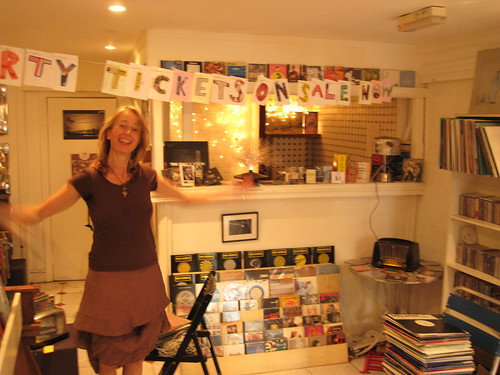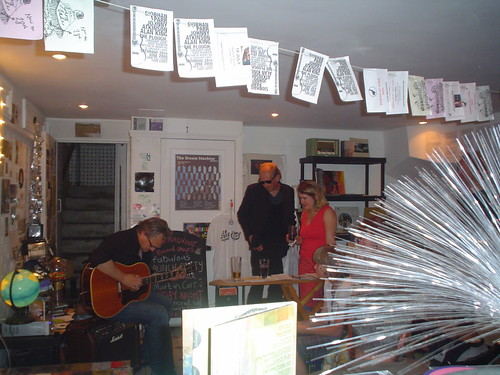
(photo thanks to hummingbird heart on flickr)
When there's a sign of an economic downturn, many brands start to think about the old adage that it's more profitable to look after and grow value from current customers rather than to try and get new ones. I suspect this is because they're worried about losing customers to competitors who slash their prices in tough times.
Of course, trying to start 'loyalty' initiatives now is just too late.
For me, genuine loyalty comes down to one simple statement:
'Staying with something for the long-term even though there may be more attractive options available right now'.
So this means sticking with something even through 'bad times'.
Is this really possible? Will people really give a s**t about brands over the long-term? Can 'loyalty marketing really work?
The trouble is that most people discount the future. They are easily and irrationally attracted to offers. Tell someone you'll give them £10 now or £100 in a year, and most will take the £10. Tell them somethings free, and they'll overlook something much better that costs them only a nominal value. (Read the brilliant book 'Predictably Irrational' by Dan Ariely for more insight into this sort of human behaviour)
The other day, my parents booked a flight to the US, just so they had enough miles to maintain their American Airlines Platinum status. So I guess it can work.
But from this is a clue. Loyalty is more likely to come from experience over and above the norm (in this case not from privilege not points).
So what does that mean for brand wanting to get somewhere close to loyalty from customers?
- Offering just a future discount based on behaviour will fail. If you're going to use discounts, do it on initial purchases to try and build a habit. (let's not pretend it's loyalty, and rename it inertia marketing??!)
- Do something special on the first purchase, not the 100th
- Look for ways to create prestige and recognition rather than discounting the brand
- Change the way the brand behaves with people who are interested. I've said it before, but for me the best 'loyalty schemes' are those that crowd-source and ask for opinions that will be acted on. P&G Tremor, Nokia, BMW, and Lego are all good examples.
- If you use points and prizes, then make sure you link it to a data and insight strategy that allows you to understand people better and test different propositions, offers and ideas with them.
- If you're online - make registering have no barriers to entry so you can immediately start to buld up a picture of what people are looking at and buying (and link into a data & insight strategy as above). This means something special on the first purchase (or even browse) not the 100th. Oh, I've said that already.
- And have a bloody good product or service. (quite important that one)
















